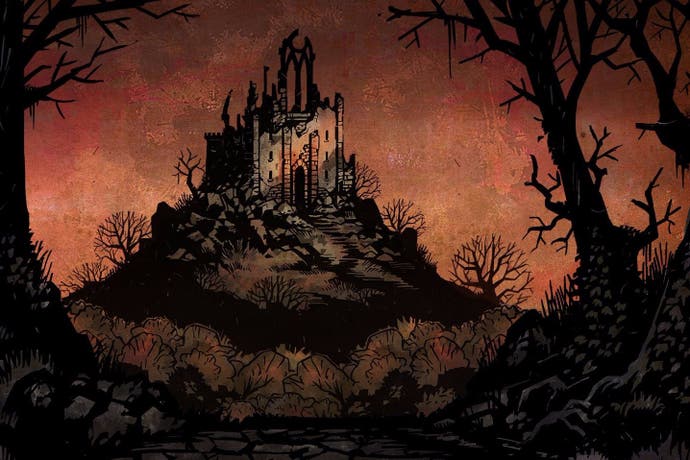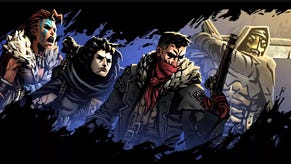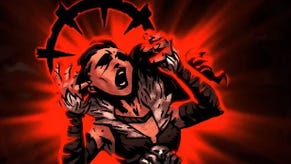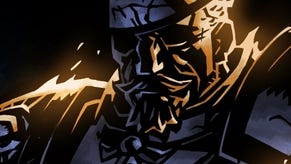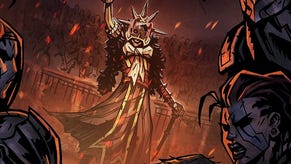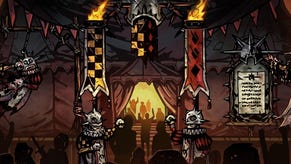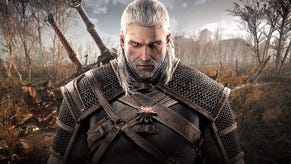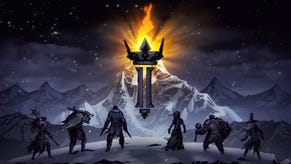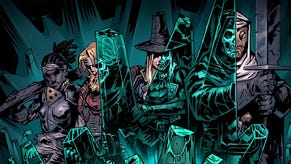In Play: Going stir crazy in Darkest Dungeon
Interior life.
In Play is a new column taking a weekly sideways look at new game releases. It's a bit like our old series Game of the Week, if you remember that.
Maybe it's the cold snap, but it feels like the games industry has been particularly slow to crawl out of its holiday hibernation this year. It's quiet; too quiet. At Eurogamer, we've had so much time on our hands that we resorted to moving our desks around and finally relaunching our podcast. (For keeps this time. Honest!) It certainly beats going outside into that bracing Brighton air. Brrr.
Still, it's hard not to feel a little cooped up, a little hemmed in by sore throats and short days. Where better to escape to than the bright freedom of a video game world? Thing is, the games seem reluctant to come out of their shells, too. Casting about for the week's new releases, I found mostly reissues, remasters and special editions - and even those had a tendency to be a little, shall we say, inward-looking.
The noble exception is Homeworld: Deserts of Kharak, a sci-fi strategy game that started life as a spiritual sequel before ending up as an actual prequel, after it was snapped up by Homeworld rights-holder Gearbox. Even this venerable series' wide horizons have been reduced, from the galactic to the planetary - but in these straitened times, we'll take that. We've got the prince of strategy Paul Dean playing it for our review, which we'll bring to you soon; in the meantime you might want to check out our old friend Alec's impressions at Rock, Paper, Shotgun. "I do admire the wanton self-destructiveness of taking one of the most quintessential space games then removing space from it," he writes. "It manages to be more Homeworldy than one might have suspected, as well as evoking fond memories of Dune II and the sudden realisation that someone really should make a Mad Max RTS." I'd play that.
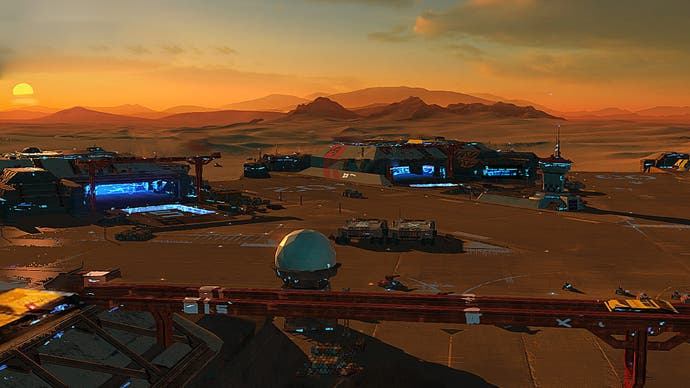
Those seeking escape in more luxuriant, duvet-day comfort gaming might want to consider some notable back-catalogue reissues this week. The PS4's PS2 Classics range welcomes Level-5's sophomore effort Dark Chronicle, a lustrous refinement of its debut action-RPG, Dark Cloud. My wife insists that you can play golf in it. Meanwhile, The Witcher 2: Assassins of Kings appears on Xbox One's backward compatibility service. CD Projekt's mealy tale of intrigue is offered, with faultless generosity, as a free download to everyone, and it's a perfect opportunity for Witcher 3 neophytes like myself to catch up with Geralt's past adventures while we wait for this year's Blood and Wine.
But if you really want to snuggle down into a warm blanket of nostalgia, may we suggest the modest charms of A Boy and His Blob - WayForward's reimagining of the 1989 kids' platformer, released on Wii in 2009, but now available on computers and the latest consoles. "It's a game that invites you to wallow in its languid depths, wriggle your toes, stretch your brain a little and take in the view," wrote Dan Whitehead (RIP) in our original review. Also, it's got a hug button. Pass the cocoa.
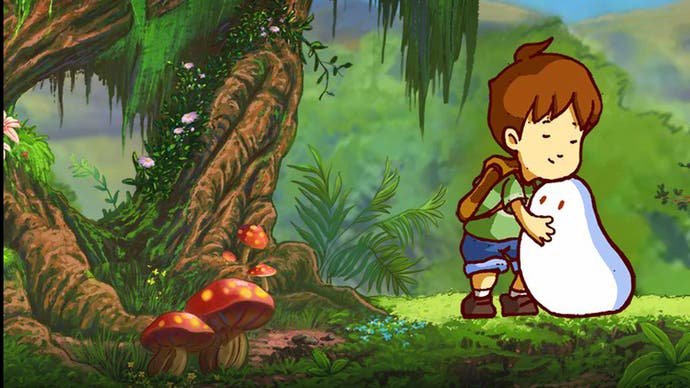
The week's other (re)releases are even more intimate in scale, if not quite so cozy in mood. (That's not even counting domestic drama Gone Home, which we're still waiting for on consoles in Europe - turns out that we were being a bit optimistic when we published Edwin's reappraisal on Monday.) Last year's hit episodic series Life is Strange gets a boxed edition - a good excuse to catch up if you missed this compelling, surprisingly tense millennial soap. Even with the lip-synching fixed, it can be awkward at times, but Aoife reckons it's one of the most interesting games in years, and who would argue?
Then there's the HD remaster of Resident Evil Zero, a game that was a curious, claustrophobic throwback even on its first release in 2002. Confining its characters to a train and its players to a staunch insistence on the series' earliest and clumsiest traditions, its cul-de-sac design now gives it a unique flavour, reckons the mannerly Parkin: "Today, this style of game design has vanished... It's still possible to perceive, however, the kernel of the series' early, glimmering appeal."
It's not exactly going to brighten up your January, though, is it? Spare a thought, then, for Donlan, who has spent this week playing the release version of the notoriously malicious, gruesome and just plain gloomy dungeon-crawler, Darkest Dungeon, which has just emerged from Steam Early Access. It's terrific - in every sense. Christian's review will appear on Monday, but here's what he just told me when I asked for a précis: "It's a beautifully calibrated and utterly vindictive spin on the roguelike in which your characters' sanity is as important as their health. Could be a cold exercise in design if the detailing wasn't so sumptuous."
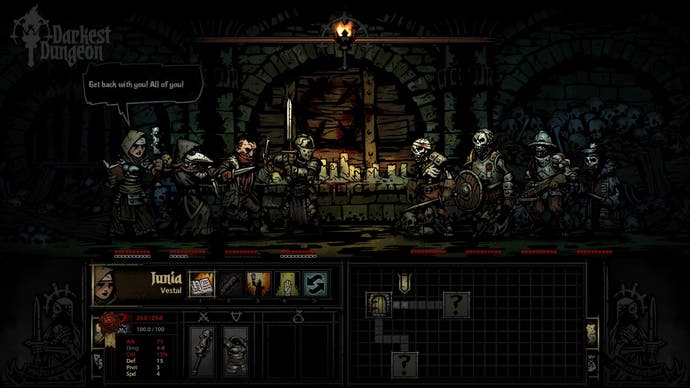
Talk about boxing yourself in. In this game, every step of progress you make into its cabinet of horrors is a step closer to the brink of madness for your characters, and you don't just ration health and resources, but light itself. The darker it is, the greater the rewards - and the easier to lose track of your marbles.
Games excel at the exploration of space, they always have, and those spaces can be real or imaginary, literal or metaphorical. They can also be exterior or interior. A game like Homeworld or Dark Chronicle invites you to extend your mastery over the world around you, but Darkest Dungeon offers a more subtle temptation: a journey inside, when what matters isn't how many doors you can open before you, but how many you can bear to close behind. That's a test that's well worth taking. But forgive me if I wait until the weather cheers up a bit.
